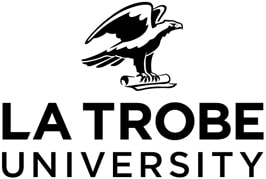This event will be presented in person and live-streamed. Registrations for the live-stream have now closed. If you have purchased a live-stream ticket, click on the link above and enter the password provided. A recording will be available for ticket holders via the same link.
Australian architect and champion of the International Modern Movement, Robin Boyd, is famous not only for his architectural contributions but also his searing critiques of Australian suburbia.
Boyd’s achievements have come to be defined by hyperbole, lauded as an architectural hero presiding over the suburbs and re-building Australia in his own architectural image. But is this image accurate, or is it a story that has been written by those with little real experience of the man himself?
In this exclusive presentation at NGV for the 2025 Trendall Lecture, acclaimed architect, educator and writer, Norman Kingwell Day, will attempt to overturn the simplistic view of Boyd’s legacy as it has come to stand in the Australian imagination.
Drawing on his experiences in the architectural field and his years working with Boyd himself, through a richly illustrated talk Day will consider the relationship between Boyd, his work, and the Australian landscape, finding the ordinariness of Boyd’s work is, perhaps, its very charm.
Norman Kingwell Day is an architect, educator, and writer. He was awarded a Doctor of Architecture (honoris causa) by RMIT University in 2000. Day worked with the late Robin Boyd and Professor Frederick Romberg before starting his own practice, with studios based in Melbourne and associates in Ho Chi Minh City, Hanoi, Bangkok, Fiji, and Dili.
His architecture is contemporary and investigative; it seeks to provide long-life-term constructions rather than short-term solutions, and has been awarded numerous national and international awards.
Major commissions include Mowbray College (Melton), Australian and New Zealand College of Anaesthetists Headquarters (Melbourne), RMIT International University (Ho Chi Minh City), Cantho LRC (Cantho City, Vietnam), PetroVietnam University (Hanoi), and Embassy for Timor Leste (Canberra).
He has been involved in architectural research and education at many universities, worked as a writer and commentator, and is a board member of
Presented in collaboration with the Trendall Research Centre for Ancient Mediterranean Studies, La Trobe University.
